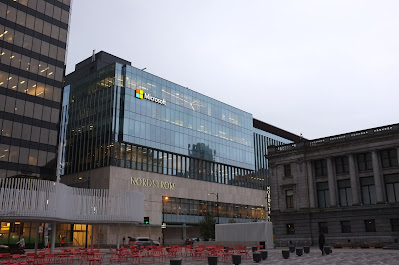AI and The Future

This blog post is based off of PBS Frontline's documentary, In the Age of AI . Photo by Maxim Hopman on Unsplash There's a lot of conflict regarding how the workplace will adapt to changes caused by AI. AI will undoubtedly get rid of jobs - especially those that are simple and repetitive - but is that a good thing? There are two sides to this: 1. The good As technology advances, jobs are always lost and replaced with more advanced jobs. This increases efficiency, and as a result will reduce production costs. AI allows us to do what humans themselves cannot do on their own. There's lots of possibilities for this. 2. The bad and ugly The number of jobs created does not necessarily have to equal the number of jobs lost. If automating a factoring turned 7,500 jobs into just 500 but created 1,000 new, highly skilled jobs (in, say, developing new robots), it is still a net loss. AI invades human privacy. Checking the probably of a loan delinquency using thousands of data poi



